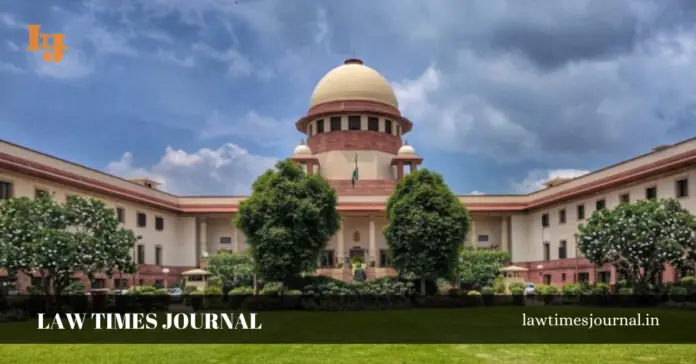
The District Magistrate of Jammu and Kashmir had filed an affidavit defending the continued detention of Jammu and Kashmir Chief Minister Mr. Omar Abdullah stating that he remains to be a threat to the public order.
Brief facts:
During the intervening night of 4th and 5th of August, the chief minister of Jammu and Kashmir, Mr. Omar Abdullah was put under house arrest after being booked under Section 107 of Cr.P.C. Later in order to justify the order of detention section 13 of the Public safety Act was invoked which allows detention up to 2 years without trial. On 5th February, 2020, a period of 6 months had elapsed since the detention of Mr. Omar Abdullah. On 10th February, 2020, Omar Abdullah’s sister Sara Pilot filed habeas corpus petition before the Supreme Court of India stating that the period of detention of Omar Abdullah under section 107 of Cr.P.C. elapsed on 5th February, 2020.
The said petition was listed before the division bench of Supreme Court comprising of Justice Arun Mishra and Justice Indira Banerjee. On 14th February, 2020 notice was issued to the Union Territory of Jammu and kashmir calling upon it to file its reply to the petition filed by Sara Pilot.
On 2nd March, 2020, an affidavit was filed by District Magistrate justifying the detention of Omar Abdullah stating that he remains to be a threat to the public order. The affidavit further stated that the order of detention was passed against Omar Abdullah due to links that existed with the past events. The Detention of Omar Abdullah was further justified stating that the detention order was passed taking into consideration of the person’s conduct and antecedent history and hence the actions of the chief minister Omar Abdullah would be prejudice to the public order and tranquility.
Sara Pilot approaching the Supreme Court directly without approaching the High Court was questioned by the authorities. It was argued on behalf of the authorities that the acts of Omar Abdullah were well against the public order, the details of which are available even in the public domain. The affidavit stated that the argument that a person cannot be a threat to the public order due to passage of 6 months period time and there exists no material facts in justifying the detention is erroneous.
Key Features:
1. Sara Pilot, sister of Omar Abdullah filed Habeas Corpus petition before the Supreme Court of India after the expiry of 6 months period since his detention.
2. The petitioner challenged the detention of Omar Abdullah under Public safety act, 1978.
3. The petitioner contended that the detention of Omar Abdullah is “manifestly illegal” and further contended that there is no issue of Omar Abdullah being a threat to the public order and tranquility even after the expiry of 6 months.
4. The petition further stated that the detention was ordered with a malafide intention to ensure that the opposition to the abrogation of Article 370 is silenced.
5. It has also been stated that there is no ground on which the detention period could be extended beyond the period of six months. The petition remarked that at no point of time Omar Abdullah had indulged in conduct of “unbecoming of a conscientious public figure”
The Supreme Court taking note of the fact that the liberty of an individual is at dispute, directed the matter to be listed on 5th March for final disposal. The court had further granted a liberty to the government officials to file additional replies if any to the petition in the meanwhile.
Edited by J. Madonna Jephi
Approved & Published – Sakshi Raje








